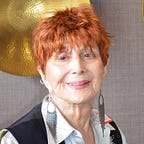Patsy Mink Heads for the Presidential Primaries
Three Women are now in the Running for President: Congresswoman Mink (D-Hawaii) joins Rep. Shirley Chisholm (D-NY) and Socialist Workers Party candidate Linda Jenness.
WASHINGTON, November 22, 1971: Congresswoman Patsy Mink, D-Hawaii, is running for president because she feels “it is the right of women to aspire to the highest office in the land.”
Does she think she stands a chance of becoming President?
“I wouldn’t be wasting my time and energy if I didn’t think this thing was viable,” says the cool, outspoken Congresswoman who recently announced she was planning to run in the Oregon primaries.
The announcement has gone “virtually unnoticed,” she said, “because it appeared as a short piece on women’s pages. If I had been a man, the announcement would have been covered as news, on the front page.”
Patsy Mink speaks matter-of-factly; she is experienced and cynical about the discrimination of women.
Born and raised in Hawaii, Patsy Mink received her law degree from the University of Chicago in 1953. She was Hawaii’s first Japanese woman lawyer — ”but nobody would hire me because I was a woman.”
“So I rented a little room for $50 a month, furnished it through the generosity of my father and hung up my shingle.” She got “all the people nobody else would help — domestic cases, criminal cases, custody, adoptions. I never made much money but I was always busy,” she said with a rueful grin.
The independence of being her own boss enabled her to become active in politics and she was elected first to Hawaii’s House of Representatives and then to its Senate. She entered the United States Congress in 1965.
Her husband, John Mink, who has a geological consulting firm in Washington, “supported me all the way.” Their daughter, Wendy, 19, a sophomore at the University of Chicago, was elected to the arrangements committee for the Democrats, as a youth member.
Mrs. Mink feels her successes have an “impact on all women. Each step I have been able to take has paved the way.”
Although she’s been “generally supportive of Martha (Congresswoman Griffiths, D-Mich.) on the equal rights amendment,” she regards it more as “a movement for women to coalesce around rather than a panacea. I don’t have any particular confidence that our judiciary system will uphold an equal rights for women amendment any more than they consider women in the 14th amendment.”
As far as her colleagues are concerned, “They try to put us down as much as they can. But they need our votes in committee and our support on the floor,” she said, laconically. “They know if we got riled up we are the representatives of all the women in the country.”
Mrs. Mink feels the women’s movement is “for women to acquaint themselves with their issues. Women are so used to the social attitudes with which they are encumbered, some of them don’t know their problems. We must make them aware.”
She thinks there is latent power in the burgeoning women’s movement; “But like the party system, you need leadership.”
She says she gets at least 500 cases a year involving some form of discrimination of women. Frequently, she is able to be of help. Last year, she learned that postal regulations denied women the job of postal inspector. She protested to then Postmaster General Winton M. Blount and two weeks later, applications for women postal inspectors were being accepted by the post office. “All that took was a letter,” she said with a grin.
“If enough people would protest, if enough people would just get involved, things would change.”
Congresswoman Mink said she is running in Oregon on the issues — the war — “I am terribly depressed that we haven’t been able to extricate ourselves — poverty, environment, education. And she expects to win.
Like her colleague, Shirley Chisholm, D-N.Y., who is running in several primaries, Congresswoman Mink believes that with “10 or 12 men on the ballot, I can win with a 25 percent plurality.”
“But if Shirley and I win all these primaries, the men will probably abolish them.” Which, she believes, would be a “good thing.”
[This article originally appeard in the Washington Daily News, November 22, 1971 as Patsy wants to be President. #35 in a collection of more than 100 newspaper articles by Judy Flander from the second wave of the Women’s Movement reflecting the fervor and ingenuity of the women who rode the wave.]
